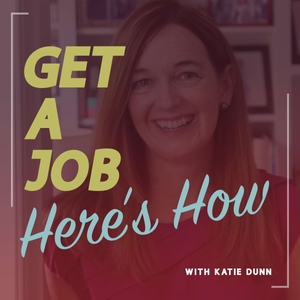
Future Focus 2030: The future of motor
05/28/20 • 24 min
It is the year 2030. As the demands for a green economy has intensified the government has announced the ban on selling new petrol, diesel or hybrid cars in the UK will be brought forward from 2035 to this year (2030). Concerns still exist over electric charge points, which although now standardised to two types, are seen by some as lagging behind vehicle manufacture.
Around 40% of the UK carpool is now classed as level three automation having ‘conditional automation’. A further 50% has levels four and five and are thus classed as ‘highly automated’ and ‘fully automated’ respectively. Interconnectivity between vehicles and other electronics owned by consumers is growing due to increased Internet of Things.
Vehicle ownership has stabilised, reducing to 40% in large cities and conurbations. E-mobility and mobility-as-a-service solutions have thrived here as people – especially those aged 25 to 40 – started to shun congested public transport in the wake of the Covid-19 pandemic in 2020.
Personal injury claims have significantly reduced as a result, but there is still a fervent market for claimant lawyers due to accidents resulting from accidents linked to the mixed carpool, as well as the rise in e-mobility solutions that are predominantly still controlled by drivers.
There have also been some extreme legal cases where fully autonomous vehicles have had to make an ethical call in terms of who to kill when put in a unusual situation. There have also been a number of accidents resulting from targeted vehicle hacks and public outrage over data leaks originating from cars.
Repair costs are still an issue, not least because the body shop network was decimated by the Covid-19 epidemic and numbers have fallen significantly. However, the market has consolidated and some major players have emerged the likes of which the sector has never seen before, with significant buying power and technological solutions. Around 60% of repairs are now notified by mobile apps at the first notification of loss, using AI to diagnose damage.
In terms of insurance products themselves, the OEMs have still not weighed in as much as might have been predicted by some; but the annual insurance policy is now only bought by 30% of the population as most people prefer usage based products – another legacy of the Covid-19 pandemic. These solutions are largely digital and mobile based.
Based on this hypothesis, Post content director Jonathan Swift sat down with the strategy director, Verisk Claims, Chris Sawford and managing director, Verisk Ireland, Niall Kavanagh to discuss the possible road map between now and the 2030 outlined above.
This includes the growth in automation/ADAS and the challenges that throws up in terms of the mixed car pool, the growth of IoT and what kind of infrastructure changes will be needed across the UK to prepare for the 2030 future outlined in the associated article.
The trio also look at how the evolution of technology from automation to advanced satnavs that identify safest routes from A to B will impact personal injury claims; and how vehicle usage and ownership is likely to change and what will be the catalysts for it.
Hosted on Acast. See acast.com/privacy for more information.
It is the year 2030. As the demands for a green economy has intensified the government has announced the ban on selling new petrol, diesel or hybrid cars in the UK will be brought forward from 2035 to this year (2030). Concerns still exist over electric charge points, which although now standardised to two types, are seen by some as lagging behind vehicle manufacture.
Around 40% of the UK carpool is now classed as level three automation having ‘conditional automation’. A further 50% has levels four and five and are thus classed as ‘highly automated’ and ‘fully automated’ respectively. Interconnectivity between vehicles and other electronics owned by consumers is growing due to increased Internet of Things.
Vehicle ownership has stabilised, reducing to 40% in large cities and conurbations. E-mobility and mobility-as-a-service solutions have thrived here as people – especially those aged 25 to 40 – started to shun congested public transport in the wake of the Covid-19 pandemic in 2020.
Personal injury claims have significantly reduced as a result, but there is still a fervent market for claimant lawyers due to accidents resulting from accidents linked to the mixed carpool, as well as the rise in e-mobility solutions that are predominantly still controlled by drivers.
There have also been some extreme legal cases where fully autonomous vehicles have had to make an ethical call in terms of who to kill when put in a unusual situation. There have also been a number of accidents resulting from targeted vehicle hacks and public outrage over data leaks originating from cars.
Repair costs are still an issue, not least because the body shop network was decimated by the Covid-19 epidemic and numbers have fallen significantly. However, the market has consolidated and some major players have emerged the likes of which the sector has never seen before, with significant buying power and technological solutions. Around 60% of repairs are now notified by mobile apps at the first notification of loss, using AI to diagnose damage.
In terms of insurance products themselves, the OEMs have still not weighed in as much as might have been predicted by some; but the annual insurance policy is now only bought by 30% of the population as most people prefer usage based products – another legacy of the Covid-19 pandemic. These solutions are largely digital and mobile based.
Based on this hypothesis, Post content director Jonathan Swift sat down with the strategy director, Verisk Claims, Chris Sawford and managing director, Verisk Ireland, Niall Kavanagh to discuss the possible road map between now and the 2030 outlined above.
This includes the growth in automation/ADAS and the challenges that throws up in terms of the mixed car pool, the growth of IoT and what kind of infrastructure changes will be needed across the UK to prepare for the 2030 future outlined in the associated article.
The trio also look at how the evolution of technology from automation to advanced satnavs that identify safest routes from A to B will impact personal injury claims; and how vehicle usage and ownership is likely to change and what will be the catalysts for it.
Hosted on Acast. See acast.com/privacy for more information.
Previous Episode

Expertise in Audio 3: From business operation to customer relationship
Martin Milliner, claims director at LV, and Stephanie Ogden, director of distribution at HDI Global, join Insurance Post's content director Jonathan Swift to discuss what the future of working in insurance and dealing with customer looks like.
Everything has been turned upside down by the coronavirus, from the way insurers conduct the claims process, to working from home. But now the crisis is abating. Our panel tackled major points including:
- Has the pandemic ushered in a brand-new business environment, or has this change been on the march for years?
- What positives are taken from the last few months that can be rolled out over the next few years?
- Will business and office life change permanently or are the current measures only here to see us through the crisis?
Listening to customers more deeply and offering them a service in a much more personal way, the reliance on technology to create a mobile and agile business and a seeing a stronger relationship with the suppliers. Is the “Leadenhall Market business structure” obsolete in a social distanced world?
Hosted on Acast. See acast.com/privacy for more information.
Next Episode

Motor Mouth Podcast 12: Motor insurance – the coronavirus’s impact on insurers
Insurance Post’s content director Jonathan Swift interviews Paul Baxter, managing director of Marmalade, to get his views and experiences of the last few months and what the major challenges will be for motor insurers in the future.
The motor landscape, like all aspects of our society, has been upended by the coronavirus pandemic. As the lockdown was implemented across the country, vehicles remained stationary or driveways, traffic dropped considerably and accident numbers fell too.
So how did motor insurers move through the crisis? From the move to working from home, to communication with customers, agility and flexibility has been sought by all to ensure a continuity to smooth running operations.
Hosted on Acast. See acast.com/privacy for more information.
If you like this episode you’ll love
Episode Comments
Generate a badge
Get a badge for your website that links back to this episode
<a href="https://goodpods.com/podcasts/insurance-post-podcast-476877/future-focus-2030-the-future-of-motor-64002633"> <img src="https://storage.googleapis.com/goodpods-images-bucket/badges/generic-badge-1.svg" alt="listen to future focus 2030: the future of motor on goodpods" style="width: 225px" /> </a>
Copy




